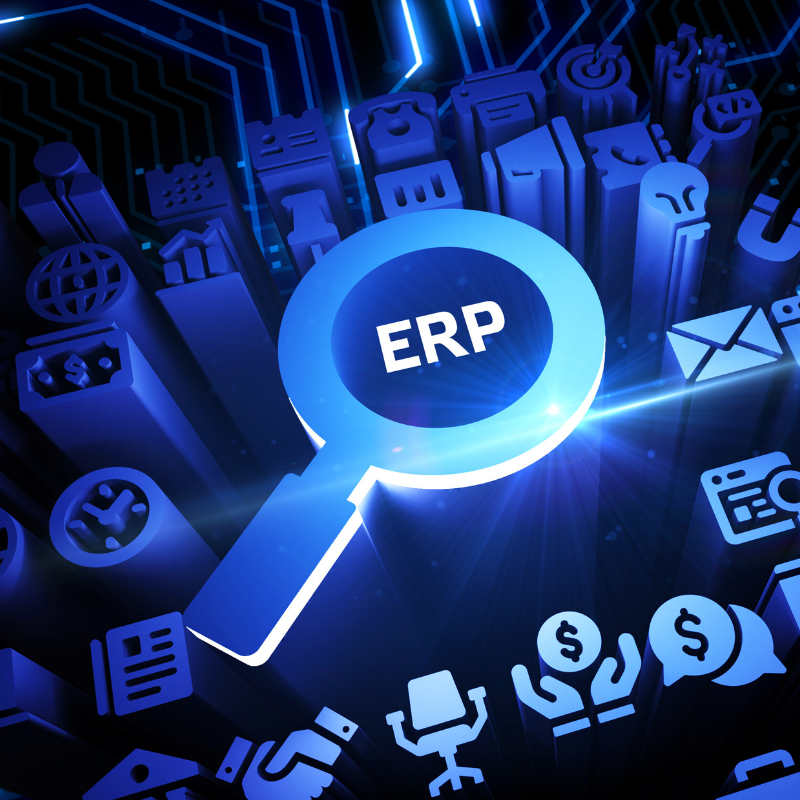In the ever-evolving realm of modern business, Enterprise Resource Planning (ERP) emerges as a crucial tool for organizations aiming to streamline operations and enhance performance. This article navigates beyond the basics of ERP, exploring the choices organizations face in implementation. We dissect the unified ERP approach versus the best-of-breed integrated approach, setting the stage for understanding specialized system integrations.
The unified ERP approach consists of a wide range of business processes functioning together within a single system provided by a single vendor. As such, employees only need to learn a single interface, which allows organizations to scale without reintegration. However, while they cater to numerous functionalities, they can be challenging to customize and adapt to specific business requirements. Certain modules or functionalities may not offer specialized capabilities or perform as efficiently as systems integrated into the ERP. These limited functionalities can be a concern as the business grows.
On the other hand, integrating your ERP with other business applications can offer specialized features in specific functional areas. This means that companies tailor their ERP stack to match the needs and requirements of the organization. Furthermore, these solutions often focus on core functionalities so organizations can take advantage of new updates and innovations without an entire ERP system update. Organizations can scale their ERP system in a customized way with the agility to add new functionalities as needed. Let’s explore some systems you can integrate to enhance your ERP system.
Customer Relationship Management (CRM)
CRM software helps to streamline the entire customer life cycle from initial contact and leads to post-sale interactions and client retention efforts. CRM systems reach their full potential when connected to other systems, such as an ERP system. Integrating your ERP with a CRM system allows customer data to be linked seamlessly; this connection is done through an API (Application Programming Interface). While some ERPs may already have robust CRM systems, merging these powerful systems can result in streamlined procedures, enhanced operational efficiency and synergies in order management and customer service.
Warehouse Management Systems (WMS)
Integrating WMS with an ERP system is common practice in supply chain and operations management. Both systems serve distinct organizational functions but have overlapping data and processes, making integration beneficial for streamlining operations and improving overall efficiency. WMS is specifically designed to manage and optimize warehouse operations, primarily focusing on day-to-day activities, including inventory management, order fulfillment, picking and packing, shipping, receiving and tracking. WMS helps companies manage inventory more efficiently, reduce manual errors, improve order accuracy and increase warehouse efficiency.
E-Commerce Platforms
ERP platforms like Oracle NetSuite often have a connector that allows you to set up data mapping between your ERP and e-commerce storefronts. This allows you to enable automatic order synchronization between your online storefront and the ERP system for streamlined order fulfillment. With an e-commerce integration, you can combine the strengths of an e-commerce platform and ERP system, enhancing the customer experience and optimizing business processes. This allows the business to stay competitive and adapt to the digital marketplace.
Professional Services Automation (PSA)
PSA software is made to help professionals with project management, resource management for client projects and utilization rate management for billable employees. These tools include various functions, such as scheduling tasks, allocating resources, tracking time and expenses, billing and reporting. With the help of PSA tools, businesses can manage projects effectively, allocate resources based on skills and availability, track time and costs for proper billing and gain insights into the efficiency and profitability of their projects. Businesses that provide consultancy, project management and other client-centric services can improve client happiness, streamline processes and make well- informed decisions to optimize their operations by utilizing PSA technologies.
Benefits of Integration
Integrating different systems into your ERP solution offers many benefits for your business. It creates a cohesive and streamlined ecosystem where various departments seamlessly share information and work in harmony. Integrating systems such as CRM, WMS, E-Commerce platforms and PSA tools empowers your organization to make well-informed decisions based on real-time, accurate data. This integration eliminates data silos, reduces manual data entry and enhances efficiency. Additionally, integration will lead to streamlined operations and increased productivity, meaning your employees can focus on business strategic pursuits and higher-level planning instead of tedious day-to-day tasks.
How We Help
Withum can provide valuable assistance through two key avenues: First, we can offer a comprehensive health check or assessment service to evaluate your current ERP setup. This enables us to identify areas for optimization and customization that align precisely with your unique business requirements. Our expertise extends to seamlessly integrating additional systems to enhance performance, ensuring that your ERP integration experience meets and consistently exceeds your expectations. With Withum’s support, achieving a finely tuned, high-performing ERP environment is well within reach.
Authors: Mars Lomtakul | [email protected]; Angie Ng | [email protected]; and Bridget Vaughey | [email protected]
Contact Us
Ready to transform your business with seamless ERP integration? Contact Withum’s CRM and ERP Consulting Services Team today for personalized solutions and take the first step toward a seamlessly integrated future.




